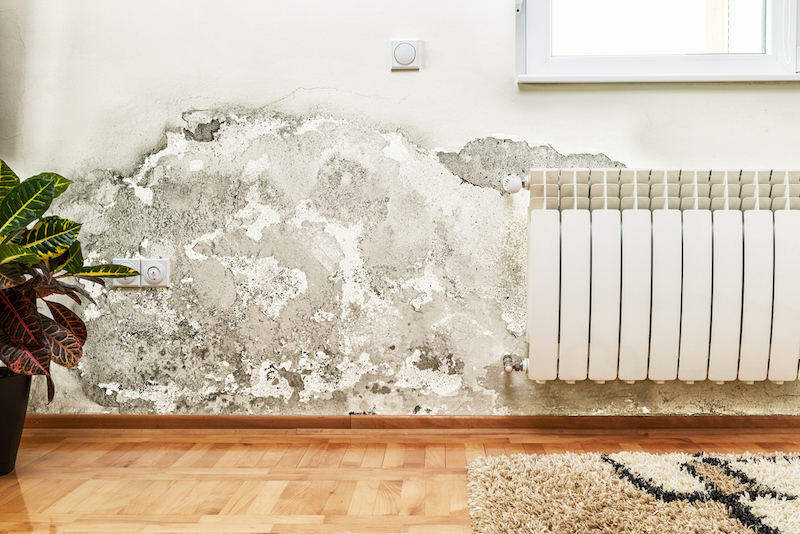Is It Illegal to Sell a House with Mold in It?
Content provided by legal writers
Discovering that your home has mold before selling is undoubtedly disappointing. Despite the increase in the prevalence of mold, most homeowners don’t know how to handle such situations, especially considering how it can affect the value of their properties. That aside, the legalities surrounding the sale of mold-infested homes is another gray area. Read on to understand how to sell a home with mold legally.
Why is Mold a Concern?
Mold infestation in a home is a big turnoff for various reasons. For starters, according to CDC, mold is a cause of several health problems. For example, living in a house with mold can cause sore throat, skin rashes, coughing, and wheezing. In addition, considering Americans spend roughly 80 to 90% of their free time indoors, a mold infestation can significantly lower indoor air quality, affecting their general health and well-being.
While some mold species are dangerous to human health, mold isn’t immediately life-threatening. Small colonies of mold might not be harmful and easily removable. However, if allowed to grow, it can spread quickly, becoming a significant issue. Apart from the respiratory effects mentioned above, large mold colonies can cause house occupants fatigue, brain fog, depression, and anxiety.
If left unchecked for some time, mold can damage your home’s physical structure. It eats through housing materials, such as the drywall, leading to safety issues cosmetic concerns, and depreciates the value of your house. That said, the presence of mold in your home is a cause of concern to potential buyers, mortgage lenders, home insurance service providers, and brokers.
Common Sources of Mold Problems
Mold can grow anywhere, provided there are water or humid conditions and oxygen. Since oxygen is all over the house, most mold problems occur with water. Below are common areas that promote mold growth.
The roof – wet roofs can promote mold growth if left unchecked. The roof protects the entire building, but moss and algae growth can harbor mold growth into the house.
Attic – a leaking roof will allow water into the attic. Accumulation of water in the attic promotes mold growth. So always be on the lookout for wet spots in your attic.
Plumbing – leaking pipes is a common phenomenon in homes. The leaks can occur within the walls or ceiling. Be on the lookout for water spots on your walls to find hidden leaks.
Basement – water in the basement is a problem to sellers and buyers as it can lead to water damage and mold growth.
Bathroom – bathrooms are small, enclosed, and full of moisture. Always ensure that your bathroom is dry and moisture-free to prevent mold growth.
What the Law Says
With the realization that mold is a common problem at homes, homeowners should find out if selling a house with mold is legal. Fortunately, no state or federal laws prohibit homeowners from selling mold-infested properties. However, you should disclose to potential buyers or lenders.
Different states have varying rules that regulate disclosure before selling a home. Generally:
- Sellers should disclose all known defects in the property
- Sellers shouldn’t lie about these defects
- Buyers are primarily responsible for investigating and identifying potential issues in the property
- Buyers could take legal action against the seller if the home was misrepresented
Simply put, if you are selling a house with mold in it, you should disclose it to property buyers. Despite not being a requirement by the law, sellers can face legal actions after the sale, especially if the mold infestation is significant to be considered a health and safety issue.
Mold Remediation
The presence of mold on exterior surfaces of the house, such as walls and siding, doesn’t have a significant impact on the property value. It also isn’t a major health and safety risk. However, mold infestation inside the property is a health risk that potentially jeopardizes the sale. Whether the infestation is inside or outside, extensive mold growth necessitates professional mold remediation.
Mold remediation is a complicated and expensive process that should be handled by professionals. In some cases, potential buyers often require sellers to cover the cost of remediation. However, some property buyers typically take advantage of such infestation to lower the property value since they would have to spend on remediation. Generally, the cost of remediation varies depending on the extent of mold growth and the size of the affected areas.
Conclusion
Homeowners shouldn’t be afraid of mold in their properties. However, it is best for property sellers to address the problem before listing the house. Even though resolving mold issues takes time, you shouldn’t let buyers associate your property with ongoing remediation. It is better if they visit the house with mold problems solved. If you are not sure about mold presence in your home, look for signs of mold in your property.
This content is provided by an independent source for informational purposes only and does not contain legal advice. Consult an attorney or financial advisor when making decisions. This information is provided by legal writers and does not reflect the views or opinions of The Daily Sundial editorial staff.





